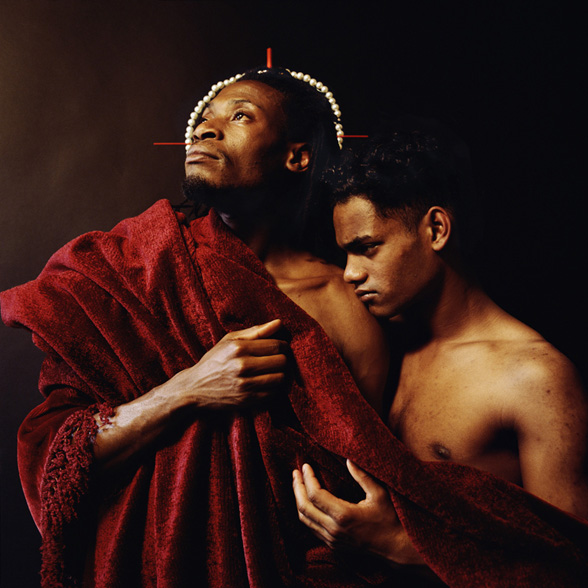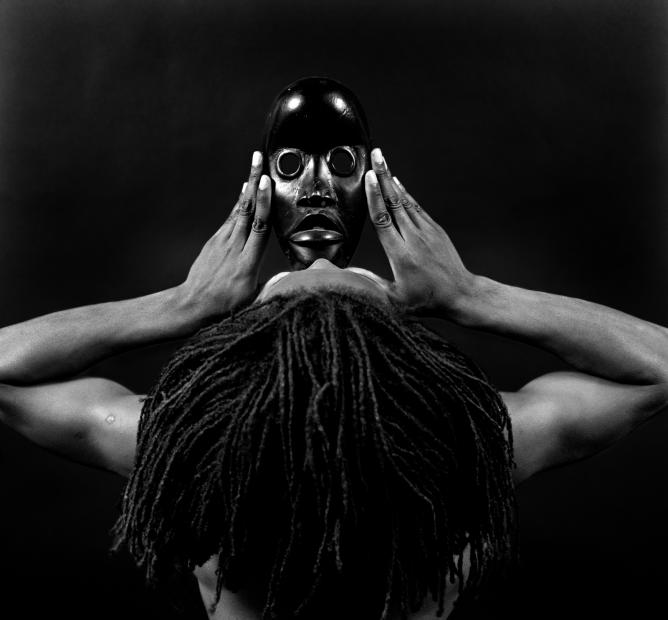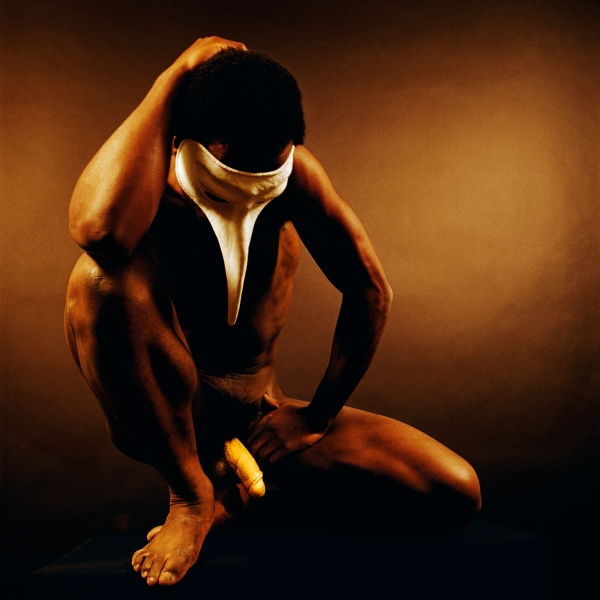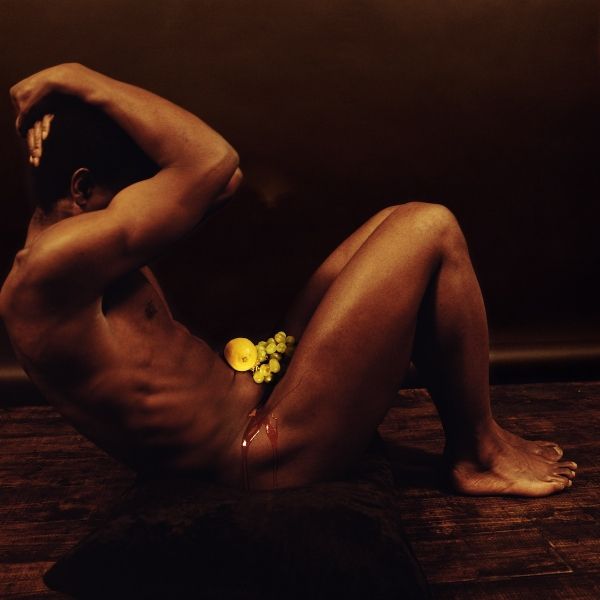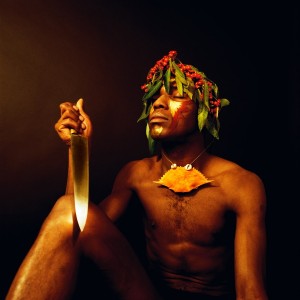
This is one of the photos of Rotimi Fani-Kayode in The Walther Collection.
Nothing to Loose, 1989.
Rotimi Fani-Kayode’s (1955-1989) photographs constitute a profoundly personal and politically engaged exploration of homoerotic desire, displacement, and spirituality. In his timeless and highly saturated large-scale color and black and white portraits, the black male body becomes the focal point of a photographic enquiry: ancestral memories and a provocative, multi-layered symbolism fuse with archetypal motifs from European and African cultures and subcultures, inspired by what Yoruba priests call ‘the technique of ecstasy’.
Rotimi Fani-Kayode was born in Nigeria in 1955 to a prominent Yoruba family who left Africa as refugees in 1966. He studied at Georgetown University and the Pratt Institute in the United States, before settling in the United Kingdom in 1983 where he lived and worked until his early death at the age of 34.
New York Times, May 10, 2012
Rotimi Fani-Kayode: ‘Nothing to Lose’
The Walther Collection Project Space
526 West 26th Street, Chelsea
Through July 28
“Black, African, homosexual photography” was how the Nigerian-born artist Rotimi Fani-Kayode described his work. And although little seen at the time of his death from AIDS in London in 1989, at 34, his pictures have become classic examples of the kind of rethinking and re-experiencing of identity that was transforming art three decades ago.
Fani-Kayode’s family moved to England from Nigeria as political exiles in 1966. He went to school in the United States — Georgetown University in Washington, Pratt Institute in Brooklyn — then settled in London. There, sometimes in collaboration with his partner, Alex Hirst (who died in 1994), he created a series of studio tableaus combining aspects of African and Western cultures.
In his last two series, “Nothing to Lose” and “Every Minute Counts,” excerpts from which make up most of the Walther Collection show, single figures, sometimes the artist himself, adorned with paint, feathers and flowers, perform what look like unidentified rituals. Partly they seem meant to refer to Yoruba religious culture, but some also read as burlesques of Western ethnographic photographs of the “primitive.”
There is, however, nothing essentially reactive in Fani-Kayode’s art. It is imaginatively theatrical, inventively erotic and a radical, positive departure from the photographic images of Africans — largely passive and documentary — that prevailed in the West up to that time. He unraveled the very notion that such a thing as “African” even existed. That he accomplished this in a career of barely six years is both the joy of his art and the sadness of it.
THE WALTHER COLLECTION
Neu-Ulm/Burlafingen, Germany
The Walther Collection is a private international art collection specializing in contemporary photography and video art.
The exhibition campus near Ulm was established in 2010 by the collector Artur Walther, who grew up in Neu-Ulm and now lives in New York. A focus of the collection is on contemporary and historical artists from Africa and Asia, whose works significantly expand the understanding, conception, and history of photography. In addition, the Walther Collection collects selected examples of modern and contemporary European and American photography. Exhibitions and publications contextualize the artists represented in the collection and make them accessible to a broader audience.
In addition to the location near Ulm, which comprises several buildings, the Walther Collection operates a project space in New York’s Chelsea neighborhood. With a new exhibition every three months, Project Space NY extends the Neu-Ulm program to include previews and retrospectives.

